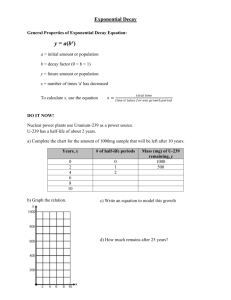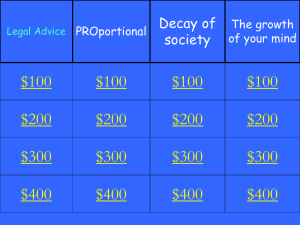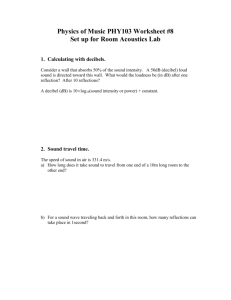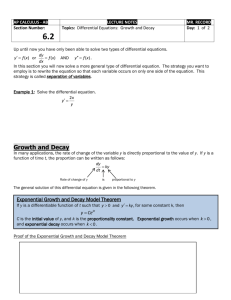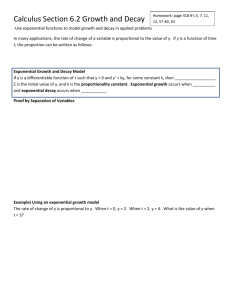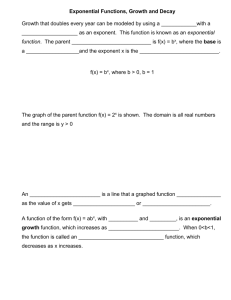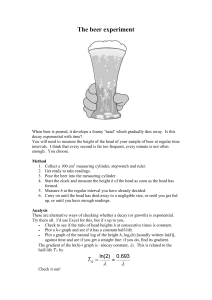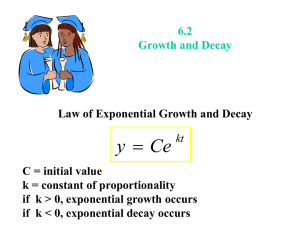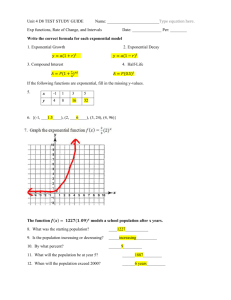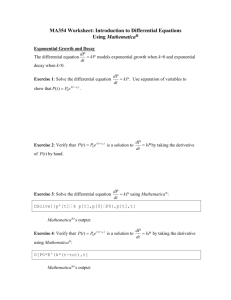6.2b Notes
advertisement
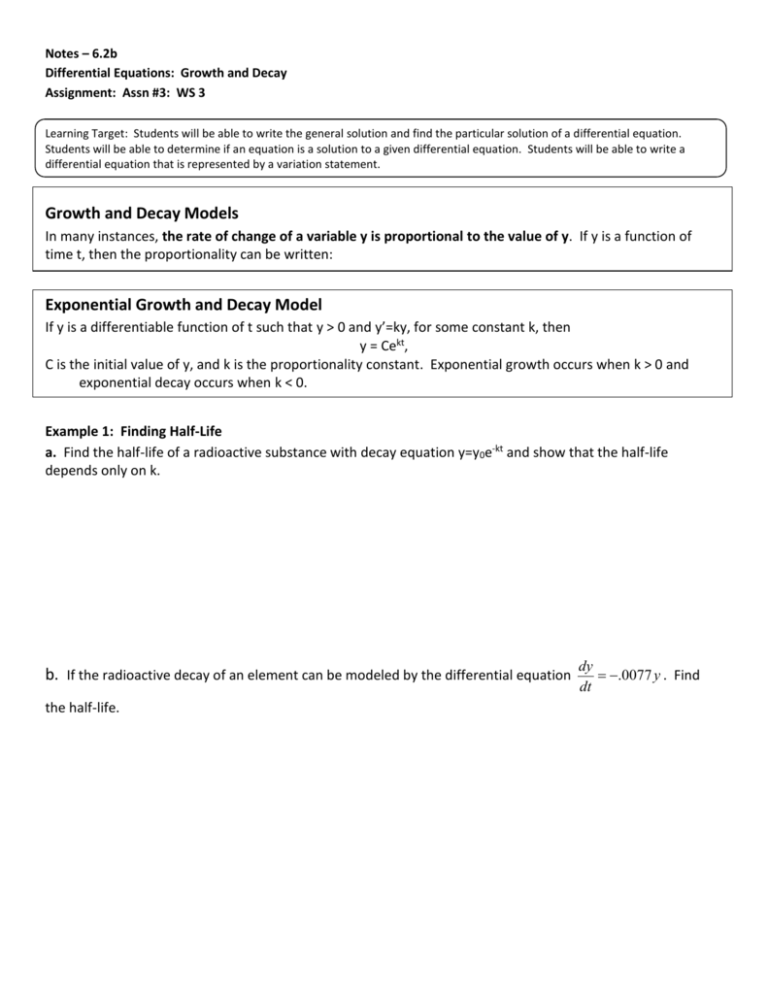
Notes – 6.2b Differential Equations: Growth and Decay Assignment: Assn #3: WS 3 Learning Target: Students will be able to write the general solution and find the particular solution of a differential equation. Students will be able to determine if an equation is a solution to a given differential equation. Students will be able to write a differential equation that is represented by a variation statement. Growth and Decay Models In many instances, the rate of change of a variable y is proportional to the value of y. If y is a function of time t, then the proportionality can be written: Exponential Growth and Decay Model If y is a differentiable function of t such that y > 0 and y’=ky, for some constant k, then y = Cekt, C is the initial value of y, and k is the proportionality constant. Exponential growth occurs when k > 0 and exponential decay occurs when k < 0. Example 1: Finding Half-Life a. Find the half-life of a radioactive substance with decay equation y=y0e-kt and show that the half-life depends only on k. b. If the radioactive decay of an element can be modeled by the differential equation the half-life. dy .0077 y . Find dt Example 2: Using an exponential growth model Bacteria grow in a certain culture at a rate proportional to the amount present. Suppose there are 100 bacteria present initially and the amount doubles in 1 hour. How many will there be in an additional 0.5 hours? Sketch a graph Find k Find the indicated amount Example 3: Using an exponential growth model Sugar dissolves in water at a rate proportional to the amount still undissolved. Suppose there are 50 grams of sugar initially and after 3 minutes only 20 grams are left. What is the total time it takes for 90 percent of the sugar to dissolve? * Sketch a graph * Find k * Find the indicated amount Example 4: Newton’s Law of Cooling A hard-boiled egg at 98°C is put in a pan under running 18°C water to cool. After 5 min., the egg’s temperature is found to be 38°C. How much longer will it take the egg to reach 20°C?
